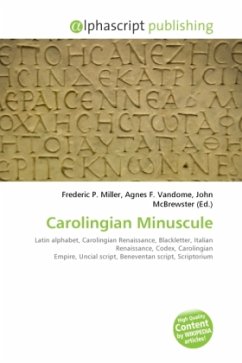An epitaph is a short text honoring a deceased person, strictly speaking that inscribed on their tombstone or plaque, but also used figuratively. Some are specified by the dead person beforehand, others chosen by those responsible for the burial. An epitaph may be in verse; poets have been known to compose their own epitaphs prior to their death, as W.B. Yeats did. Most epitaphs are brief records of the family, and perhaps the career, of the deceased, often with an expression of love or respect - "beloved father of ..." - but others are more ambitious. From the Renaissance to the 19th century in Western culture, epitaphs for notable people became increasingly lengthy and pompous descriptions of their family origins, career, virtues and immediate family, often in Latin. However, the Laudatio Turiae, the longest known Ancient Roman epitaph exceeds almost all of these at 180 lines; it celebrates the virtues of a wife, probably of a consul.
Bitte wählen Sie Ihr Anliegen aus.
Rechnungen
Retourenschein anfordern
Bestellstatus
Storno








